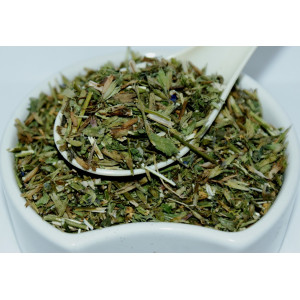In today’s fast-paced world, stress has become a common part of daily life for many people. Fortunately, nature provides us with a variety of herbs and plants that can help alleviate stress and promote relaxation. In this article, we’ll explore some natural remedies for stress, including hyssop, skullcap, and more.
Table of Contents
- Understanding Stress and Its Effects
- Hyssop: Nature’s Stress Reliever
- Skullcap: A Soothing Herb for Anxiety
- Other Natural Remedies for Stress
- How to Incorporate Stress-Relieving Herbs into Your Routine
- Precautions and Considerations
- Frequently Asked Questions
Understanding Stress and Its Effects
What is Stress?
Understanding Stress: The Body’s Response Stress is our body’s natural reaction to various types of challenges or demands, be they physical, emotional, or psychological. When faced with stress, the body releases hormones like cortisol and adrenaline, which gear us up for a “fight or flight” response. This physiological mechanism prepares the body to either confront or flee from perceived threats.
The Effects of chronic stress
Chronic Stress and Its Health Implications Prolonged exposure to stress, or chronic stress, can take a severe toll on both physical and mental health. This persistent state of stress has been linked to numerous health issues, including heightened anxiety, depression, disturbances in digestive health, cardiovascular diseases, and weakened immune function. Understanding and managing chronic stress is crucial for maintaining overall health and preventing long-term detrimental effects.
Hyssop: Nature’s Stress Reliever
Overview of Hyssop
Hyssop (Hyssopus officinalis) is a perennial herb celebrated for its aromatic properties and vibrant flowers. Native to the Mediterranean area, it has been embraced throughout history for its beneficial uses in both culinary and medicinal contexts. Traditionally valued for its antiseptic, cough relieving, and digestive properties, hyssop has a minty, slightly bitter flavor that makes it a versatile addition to various dishes and herbal remedies. Rich in essential oils, hyssop is also popular in aromatherapy for promoting relaxation and mental clarity.
Health Benefits of Hyssop
- Relieves Anxiety: Hyssop has anxiolytic properties that can help calm the mind and reduce feelings of anxiety.
- Promotes Relaxation: The aromatic compounds found in hyssop can help promote relaxation and alleviate stress.
- Supports Respiratory Health: Hyssop has expectorant properties that can help clear congestion and promote respiratory health.
Skullcap: A Soothing Herb for Anxiety
Overview of Skullcap
Skullcap (Scutellaria lateriflora) is a flowering plant native to North America. It is prized for its mild sedative effects and ability to promote relaxation.
Health Benefits of Skullcap
- Reduces Anxiety: Skullcap contains compounds that act on the nervous system to reduce feelings of anxiety and promote calmness.
- Improves Sleep Quality: Skullcap can help improve sleep quality by calming the mind and reducing racing thoughts.
- Supports Nervous System Health: Skullcap has neuroprotective properties that may help protect against oxidative stress and promote overall nervous system health.
Other Natural Remedies for Stress
In addition to hyssop and skullcap, there are many other herbs and plants that can help alleviate stress and promote relaxation. Some popular options include:
- Chamomile: Known for its calming properties, chamomile tea is a popular remedy for stress and anxiety.
- Lavender: The soothing aroma of lavender essential oil can help promote relaxation and improve sleep quality.
- Passionflower: Passionflower is often used to treat anxiety, insomnia, and nervous disorders.
How to Incorporate Stress-Relieving Herbs into Your Routine
Herbal Teas
Brewing Herbal Teas for Stress Relief Preparing herbal tea is a delightful and straightforward method to harness the soothing properties of herbs. Choose your preferred herbs, steep them in boiling water for several minutes, and enjoy the calming beverage. This simple ritual can significantly aid in relaxation and stress relief, providing a moment of peace in your day.
Aromatherapy
Using Essential Oils for Relaxation Aromatherapy utilizes essential oils to foster relaxation and diminish stress. Introduce a few drops of your chosen essential oil into a diffuser to fill your space with tranquil aromas. Alternatively, for a more direct effect, dilute the oil with a carrier oil and use it for a soothing massage, enhancing both physical and mental relaxation.
Precautions and Considerations
While herbal remedies can be effective for stress relief, it’s important to use them safely and responsibly. Here are a few precautions to keep in mind:
- Consult with a Healthcare Professional: If you’re pregnant, nursing, or taking medication, be sure to consult with a healthcare professional before using herbal remedies.
- Start Slowly: When trying a new herb or supplement, start with a low dose to gauge your body’s reaction.
- Be Patient: Herbal remedies may take time to produce noticeable effects, so be patient and consistent with your usage.
Stress-Relieving Herbal Selections from Health Embassy
At Health Embassy, a variety of herbs are available that can help manage stress naturally. Among them, you can find herbal teas like Lemon Balm, Chamomile, and Lavender, all known for their calming properties. These herbs are not only useful for brewing soothing teas but can also be incorporated into aromatherapy practices to enhance relaxation. Each product is detailed with specific information on preparation methods and health benefits, making it easier to incorporate these natural remedies into your daily routine for stress relief.
Frequently Asked Questions
1. Are herbal remedies safe for everyone?
While herbal remedies are generally safe for most people, there may be exceptions for certain individuals, such as pregnant or nursing women, children, and those with underlying health conditions. It’s always best to consult with a healthcare professional before using herbal remedies, especially if you have any concerns or questions.
2. Can herbal remedies interact with medications?
Yes, some herbal remedies may interact with certain medications, either by increasing or decreasing their effectiveness. If you’re taking medication, be sure to check with your healthcare provider before using herbal remedies to avoid any potential interactions.
3. How long does it take for herbal remedies to work?
The time it takes for herbal remedies to work can vary depending on the individual, the specific herb or supplement being used, and the severity of the condition being treated. In general, it may take several weeks of consistent use to notice significant improvements in symptoms.






